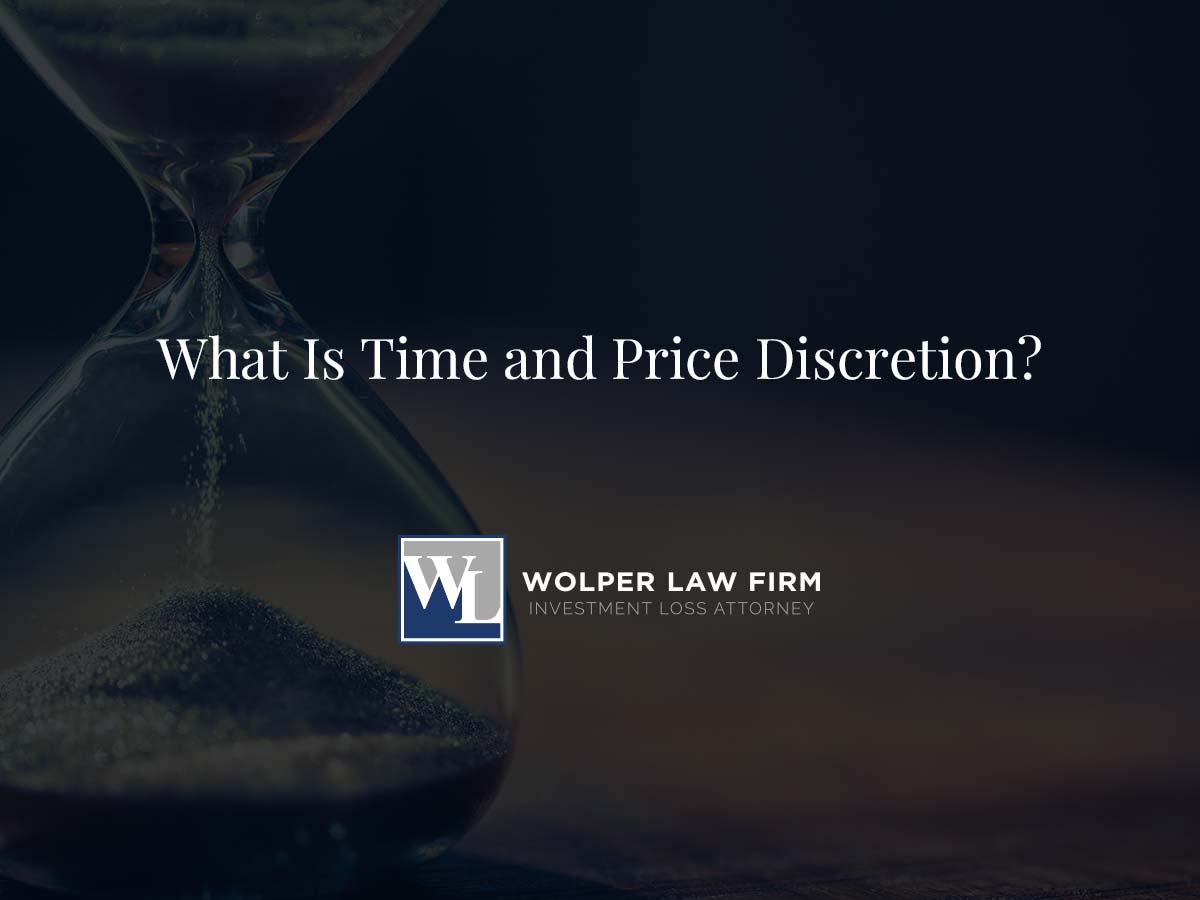- August 17, 2020
- Investor Education

Investors trust that their financial advisors are prioritizing their financial interests over their own. Often investors will give their brokers the authority to make trades and transactions in their accounts under very specific circumstances, at certain prices, or during a certain period of time.
When transactions are made that do not meet these conditions and investment losses occur, the investor may be able to recover their losses by filing a complaint with the Financial Industry Regulatory Authority (FINRA) for unauthorized trading. Continue reading to learn more about time and price discretion, unauthorized trading, and FINRA arbitration proceedings.
Unauthorized Trading and Time and Price Discretion
There are a couple of different types of accounts that you could have with your brokerage firm. Discretionary accounts allow financial advisors to execute trades and transactions at their discretion, without gaining individual approval for every trade. In non-discretionary accounts, the stockbroker will need to have the authorization of their client before a transaction can be made.
Generally speaking, if a loss occurs when an advisor does not have authorization to make a trade, the investor can seek recovery of the loss in FINRA arbitration.
Investors do have the option of giving temporary authorization at the broker’s discretion. The time and price of these trades can then be determined by the financial advisor.
However, if the time and price goes beyond the day in which the temporary authorization was given, any given trades will be considered unauthorized and therefore lay the groundwork for a FINRA arbitration claim.
Things to Know About FINRA Arbitration
Unauthorized trading is one of the more common types of cases heard in FINRA arbitration. FINRA arbitration may seem overwhelming, but when you have an investment loss lawyer on your side, the entire process can go much more smoothly.
In your hearing, you can expect to have the opportunity to present evidence to support your case that unauthorized training occurred. The broker will then have the opportunity to explain their reasoning and try to defend the transactions in question.
Once both parties have had the opportunity to present their case, a panel of arbitrators will independently review the evidence and work to deliver a decision. Most FINRA arbitration decisions can be resolved within eighteen months. This is much different than if you were to go to court, as in some cases it could take years before your case is even heard by a judge, let alone a decision made.
If the arbitrators determine that unauthorized trading did occur, they may order the stockbroker to repay you for your losses within thirty days of their decision being made. It should be noted that decisions made by FINRA arbitrators are not eligible for appeal.
Get Help from a Qualified Investment Loss Lawyer
If you are a harmed investor interested in learning more about how a reputable investment loss lawyer at Wolper Law Firm, P.A. could help you maximize your investment loss recovery, schedule a free consultation by calling our office at 800.931.8452 or completing the quick contact form included below.

 Matt Wolper is a trial lawyer who focuses exclusively on securities litigation and arbitration. Mr. Wolper has handled hundreds of securities matters nationwide before the Financial Industry Regulatory Authority (FINRA), American Arbitration Association (“AAA”), JAMS, and in state and federal court. Mr. Wolper has handled and tried cases involving complex financial products and strategies ranging from traditional stocks and bonds to options, margin and other securities-based lending products, closed/open-end mutual funds, structured products, hedge funds, and penny stocks. [
Matt Wolper is a trial lawyer who focuses exclusively on securities litigation and arbitration. Mr. Wolper has handled hundreds of securities matters nationwide before the Financial Industry Regulatory Authority (FINRA), American Arbitration Association (“AAA”), JAMS, and in state and federal court. Mr. Wolper has handled and tried cases involving complex financial products and strategies ranging from traditional stocks and bonds to options, margin and other securities-based lending products, closed/open-end mutual funds, structured products, hedge funds, and penny stocks. [